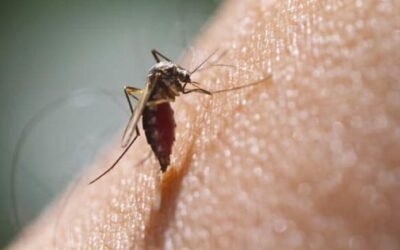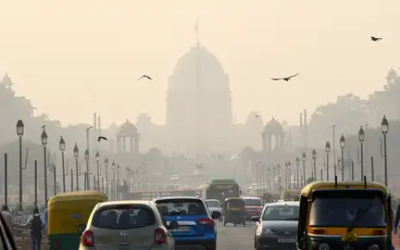By consistently checking the AQI levels and taking necessary precautions like safeguarding personal health, particularly in high pollution periods, people can ensure a safer continuation of their everyday routines.
As pollution levels soar in bustling urban centers such as Delhi, healthcare experts are sounding the alarm on the grave dangers to respiratory, skin, and eye well-being. Surpassing 400, Delhi’s Air Quality Index (AQI) has reached alarming heights, magnifying the risks of severe health complications and underscoring the urgent need for proactive health protection. This article aims to provide useful guidance on addressing the health threats associated with elevated pollution levels and suggests preventive actions for individuals and households to safeguard their health.
The Impact of Pollution on Respiratory Health, Skin Condition, and Eye Health
Dr. Meenakshi Jain, the Senior Director of Internal Medicine at Max Super Speciality Hospital in Patparganj, sheds light on the repercussions of heightened pollution levels on respiratory health. The surge in conditions such as asthma, chronic bronchitis, and even lung cancer is directly linked to this environmental factor. She elaborates on how fine particulate matter (PM2.5) possesses the capacity to deeply penetrate the lungs, sparking inflammation and hindering optimal lung function. Prolonged exposure to these harmful pollutants can lead to the development of persistent respiratory conditions, obstructing individuals from breathing effortlessly and performing their daily activities. Moreover, the continual inhalation of these pollutants not only jeopardizes lung well-being but also heightens the susceptibility to cardiovascular issues and lung malignancies.
Dr. Pratibha Dogra, a Senior Consultant specializing in Pulmonology and Sleep Medicine at Marengo Asia Hospitals in Gurugram, highlights the harmful effects of pollutants penetrating the lungs. She discusses how high levels of pollution can lead to asthma, bronchitis, and decreased lung capacity. Dr. Dogra cautions that prolonged exposure can worsen respiratory conditions, particularly in sensitive populations like children and the elderly.
Exposure to pollution can have a profound effect on both the eyes and skin. Dr. Jain emphasizes that substances like smoke and chemical fumes have the potential to trigger irritation in the eyes, resulting in issues like redness, dryness, and increased tearing. These symptoms, if not addressed, may progress to more severe eye ailments like conjunctivitis or corneal harm, especially in individuals with existing eye sensitivities. Additionally, when the skin comes into contact with airborne toxins, it can experience dryness, acne, premature aging, and in combination with UV radiation, potentially lead to skin cancer.
Dr. Dogra emphasizes that pollutant particles can obstruct pores and exacerbate skin problems like dryness, acne, and premature aging. To combat these concerns, she recommends a comprehensive skincare routine to shield and moisturize the skin.
Reducing Exposure to Pollution: A Comprehensive Guide
Both specialists emphasize the significance of monitoring and controlling exposure in highly polluted settings. Dr. Jain suggests keeping track of local air quality indexes (AQI) and reducing outdoor activities when pollution levels are elevated. Additionally, Dr. Dogra recommends preplanning outdoor activities and refraining from exercising outside during the early morning when pollution levels peak.
Dr. Dogra suggests wearing an N95 mask outdoors to lower pollutant exposure. To enhance indoor air quality, she advises sealing windows, employing air purifiers, and incorporating indoor plants. Emphasizing the need to limit pollutants indoors is crucial for a healthier living environment.
Dr. Jain recommends various approaches to preserve the quality of indoor air, including the deployment of air purifiers, proper ventilation of living spaces, and steering clear of indoor pollutants like tobacco smoke and strong cleaning agents. By incorporating these methods alongside routine monitoring of the Air Quality Index (AQI), individuals can effectively mitigate the hazards linked to substandard air quality.
Combatting Pollution with Optimal Hydration, Nutrition, and Skincare
Dr. Jain emphasizes the importance of maintaining proper hydration levels and incorporating antioxidants into your diet to help combat the negative effects of pollution on the body. Hydration plays a crucial role in promoting skin health and overall wellness. Antioxidants are essential in fighting oxidative stress, a leading cause of cellular damage due to pollution. Dr. Dogra suggests increasing intake of antioxidant-rich foods to enhance immunity and reduce the impact of toxins. Furthermore, she recommends washing eyes with clean water to alleviate dryness, integrating hydrating skincare products into your routine, and applying moisturizer to fortify the skin barrier against pollutants.
Seeking Medical Assistance: Knowing When to Get Help
It is crucial to recognize the appropriate time to consult medical professionals. Dr. Jain recommends staying alert for indications of respiratory problems like a lingering cough, difficulty breathing, or wheezing, particularly if these signs deteriorate in polluted environments. Additionally, she cautions that persistent eye redness, swelling, or discomfort unresponsive to over-the-counter treatments necessitates a doctor’s evaluation. Similarly, skin issues such as severe acne or enduring rashes should not be dismissed.
Dr. Jain highlights the significant health impacts of pollution and stresses the importance of taking a proactive approach by monitoring environmental conditions and adopting a healthy lifestyle to minimize these risks. People can safeguard their health and lower pollution-induced health hazards by taking preventive actions like limiting outdoor activities during high-pollution days, wearing protective masks, and ensuring good indoor air quality.
By incorporating uncomplicated practices such as utilizing air purifiers, maintaining proper hydration, and selecting foods abundant in antioxidants, individuals can bolster their ability to withstand the effects of pollution on health, as suggested by Dr. Dogra. Monitoring air quality index levels consistently alongside implementing these preventive steps not only safeguards health, particularly during times of heightened pollution but also enables individuals to carry on with their everyday tasks in a more secure manner.












































































































